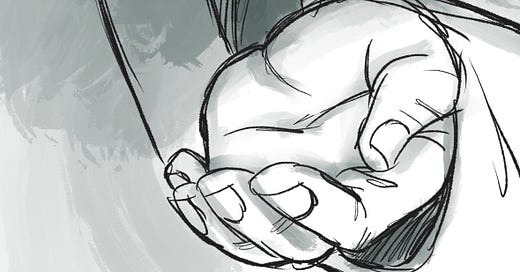In previous posts I discussed the main mental health professions that could support individuals and families. I did not, nor do I want any reader to be under the delusion that I think grief is not a natural process that has to be gone through. That said, if you are working and grief symptoms impact your ability to work, you must interact with employers, policies and legal systems. This will invariably lead to these symptoms being put through a process of labelling from mental health professionals to satisfy a third party involved with your workplace, such as an insurance company or human resources department. This is not a new phenomenon but how we have slowly structured our society over hundreds of years. In many ways, for most situations or processes it does serve a purpose. However as always, it's the cases out of the ordinary or extreme e.g. those experiencing profound or complex grief who find that the current available labels and diagnoses don't fully capture the unique challenges they face.
What is “normal”?
It would appear that since humanity started living in communities, we have established rituals in and around the death of community members. We all (well, most of us) innately understand that a funeral is an important ceremony, and we must behave with a certain level of decorum. After the funeral, at the reception, these rules can tend to loosen. At least, that's what I've observed at the funerals I've attended. All that said, once the funeral has occurred, after a few weeks, the grieving person or family is left to deal with their loss. We expect grieving people to be withdrawn and less sociable. Over time, most individuals integrate themselves back into society. This is a relief for everyone. Some sort of normality has returned.
For most deaths that would fall into the expected category, this is really what happens. However, some deaths, such as the death of a child, losing a young sibling, or spouse can be devastating on a personal level and the “normal” grieving cycle will be unable to fit into these scenarios. Everyone I have spoken to with the experience of losing an older parent and a child confirms that the latter is exponentially worse. This is always stated with the understanding that losing an older parent is a horrible experience for any family.
There is hope that things will return to some sort of normality, but with certain losses it just is not possible. Any initial attempts to reintegrate into society invariably end poorly. The process of re-integration to normality is slow, full of setbacks and certain things you may never be able to do again.
Children still must go to school; households still need to run, and wages still must be earned. If any of these or many other things are not attended to, then problems start to build up. A personal example of this was upon my first proper day back to work after my son’s death. I was stopped by the police after turning left into a bus lane into my place of work. To this day, I am not sure whether it was a new bus lane or whether I had always been an errant driver. I do know I had never seen a police car parked outside my then-place of work before nor since. During the stop, the police officers noticed my registration was out of date on my car. I was not sure if it had been paid as at the time I was in the hospital with my son when he was dying. As you can imagine, this conversation went from bad to worse. I ended up with a fine, being late for work, and being dreadfully upset and angry to the point where I was clearly making my colleagues and supervisors extremely uncomfortable. I think that’s when I started to realise, I could never go back to normal in any facet of my life. There was no normal grief cycle to be found here. It certainly was not going to follow a predictable timeline or fit neatly into societal expectations.
I use this example to illustrate that at these points, an individual is probably going to have to accept interacting with the mental health system or risk losing their job. You will need a professional to tell an organisation that you have various diagnoses. This is because you as an individual telling them you are too sad and angry to currently perform your role cannot be understood by bureaucratic human systems.





